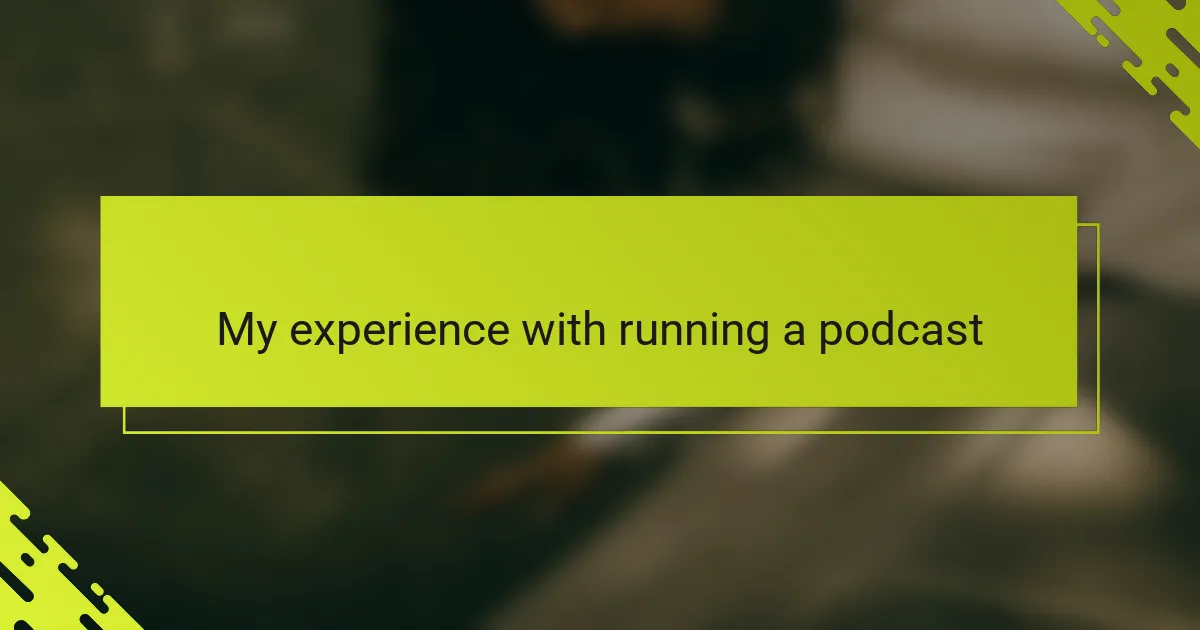Key takeaways
- Understanding queer women culture emphasizes connection, authenticity, and the importance of shared stories that celebrate identity.
- Starting a podcast requires a clear focus, basic technical tools, and consistency to engage listeners effectively.
- Building an audience involves creating a space for connection and actively participating in community interactions for genuine engagement.
- Sustaining a podcast benefits from setting realistic goals, staying connected with the audience, and celebrating small achievements to maintain motivation.
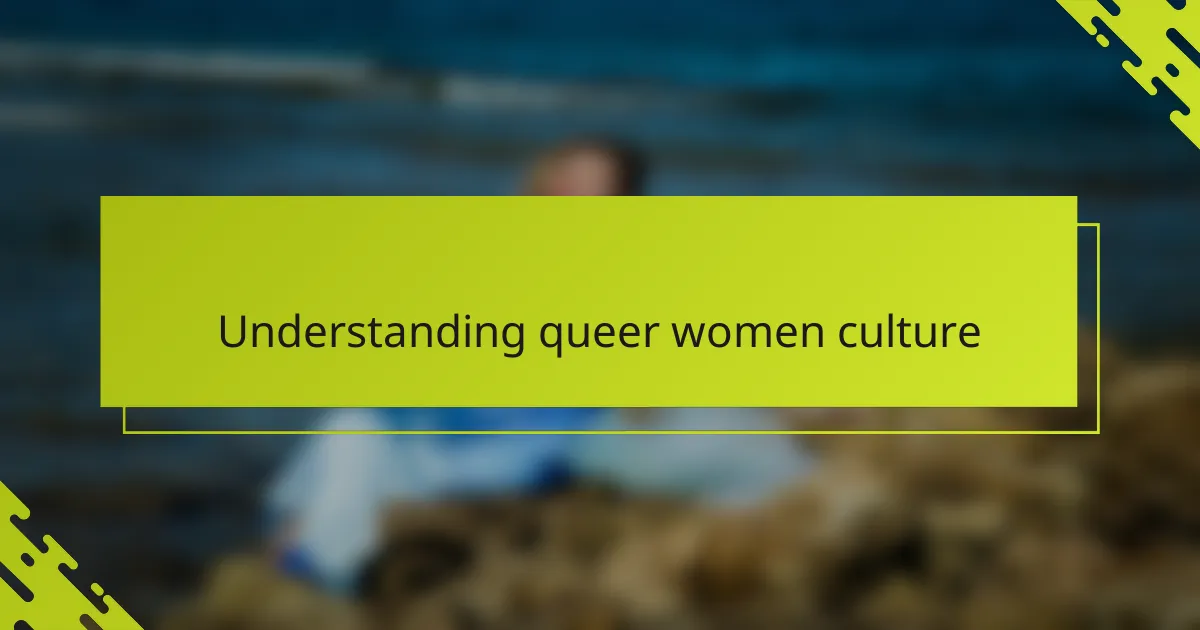
Understanding queer women culture
Understanding queer women culture is more than learning labels or identities; it’s feeling the rich, vibrant tapestry woven from diverse experiences, struggles, and joys. When I first immersed myself in this culture, I realized how deeply connection and authenticity matter—it’s about shared stories that validate who we are in a world that often tries to erase us. Have you ever wondered what it feels like to find a community where your existence is not just accepted, but celebrated? That sense of belonging is at the heart of queer women culture, and it’s something I’ve come to cherish immensely.
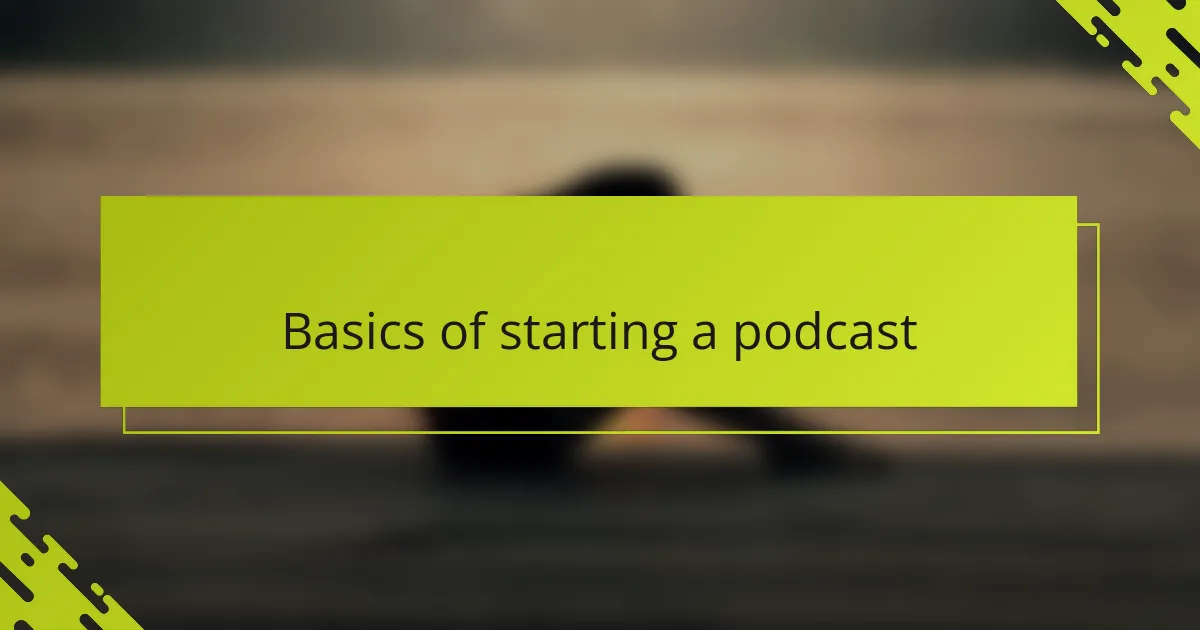
Basics of starting a podcast
Starting a podcast might seem daunting at first, but from my experience, it begins with choosing a clear focus. When I launched mine, narrowing down the topic helped me stay authentic and connect deeply with listeners. Have you ever felt overwhelmed by the sea of content online? Defining your niche cuts through the noise.
Next, I found that the technical side isn’t as scary as it sounds. Basic tools like a good microphone and simple editing software were game changers for me. You don’t need fancy equipment to start—just a willingness to learn and a bit of patience while you figure things out.
Finally, consistency is key. I learned this the hard way after a few inconsistent episodes led to listeners drifting away. Asking myself, “How can I keep my audience engaged?” pushed me to plan ahead and stick to a schedule. It’s that commitment that transforms a hobby into a meaningful conversation space.
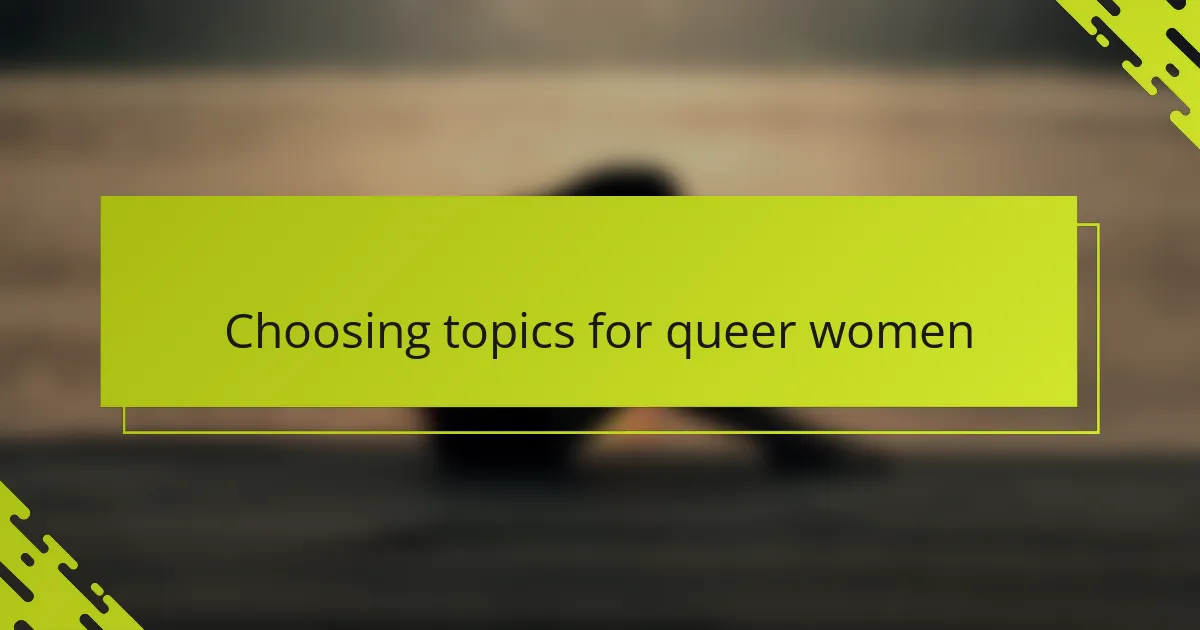
Choosing topics for queer women
Choosing topics for queer women means tuning into the nuances that resonate deeply within our community. I remember sitting with a notebook, brainstorming ideas that felt both personal and universal—stories about navigating relationships, celebrating identity, or confronting stereotypes. It wasn’t about covering everything but about honoring voices often left unheard.
Sometimes, I asked myself: “What do I wish someone had told me when I was finding my way?” That question became a compass. Topics that explore intersectionality, mental health, and creative expression naturally emerged because they echoed my own journey and those of the people I connected with. These conversations felt less like lectures and more like shared experiences.
Of course, not every episode needed to be profound. Light-hearted moments—like discussing queer icons or favorite safe spaces—also brought warmth and joy. I found that balancing depth with levity kept things engaging and true to the vibrant, multifaceted spirit of queer women culture. Have you noticed how a simple story can sometimes open the biggest doors?
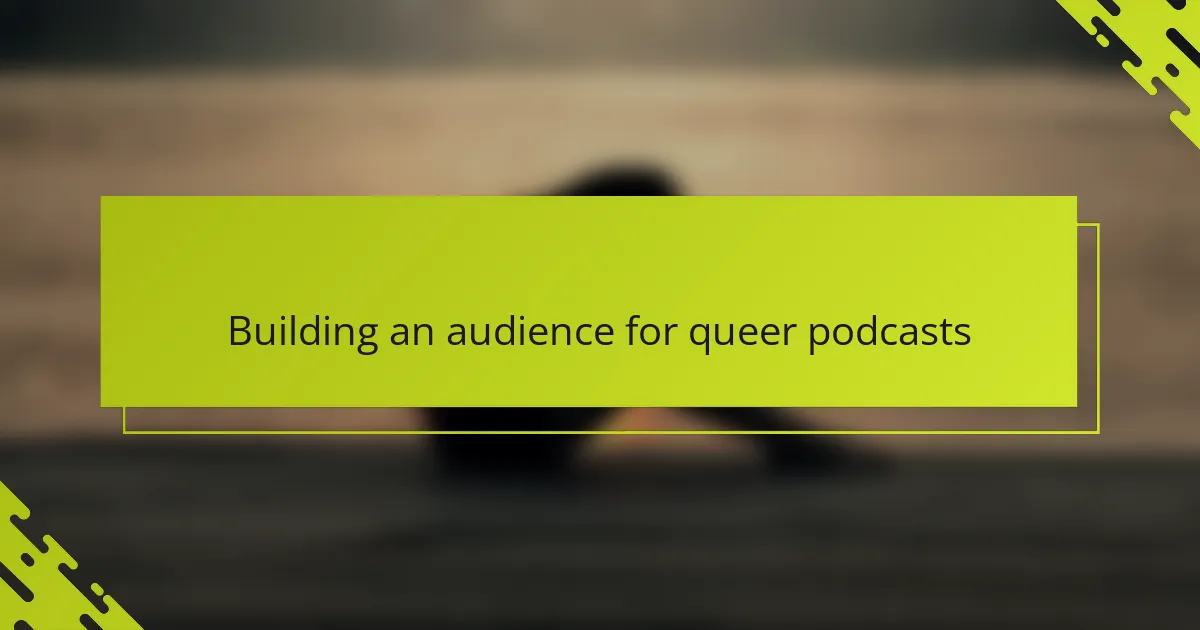
Building an audience for queer podcasts
Building an audience for queer podcasts means more than just attracting listeners; it’s about creating a space where people feel seen and heard. When I first shared personal stories on my podcast, the responses were unexpectedly heartfelt—listeners reached out to say they finally found a platform reflecting their own experiences. Have you ever experienced that powerful moment when your voice connects deeply with someone else’s story? That’s the magic every queer podcast aims to capture.
Promotion can feel tricky, but I learned early on that genuine engagement beats flashy marketing. Joining queer online communities and participating in conversations helped me invite listeners in organically. For example, sharing behind-the-scenes moments or asking for topic suggestions turned listeners into collaborators. This kind of interaction made the audience feel like they weren’t just passive consumers but part of a growing queer dialogue.
Consistency, again, plays a crucial role in audience-building. I noticed that when I missed an episode, people would message, checking in and showing they cared. It reminded me that audience-building isn’t just about numbers—it’s about relationships. How often do we underestimate the power of showing up regularly for a community craving connection? That commitment has been the cornerstone of every listener gained on this journey.
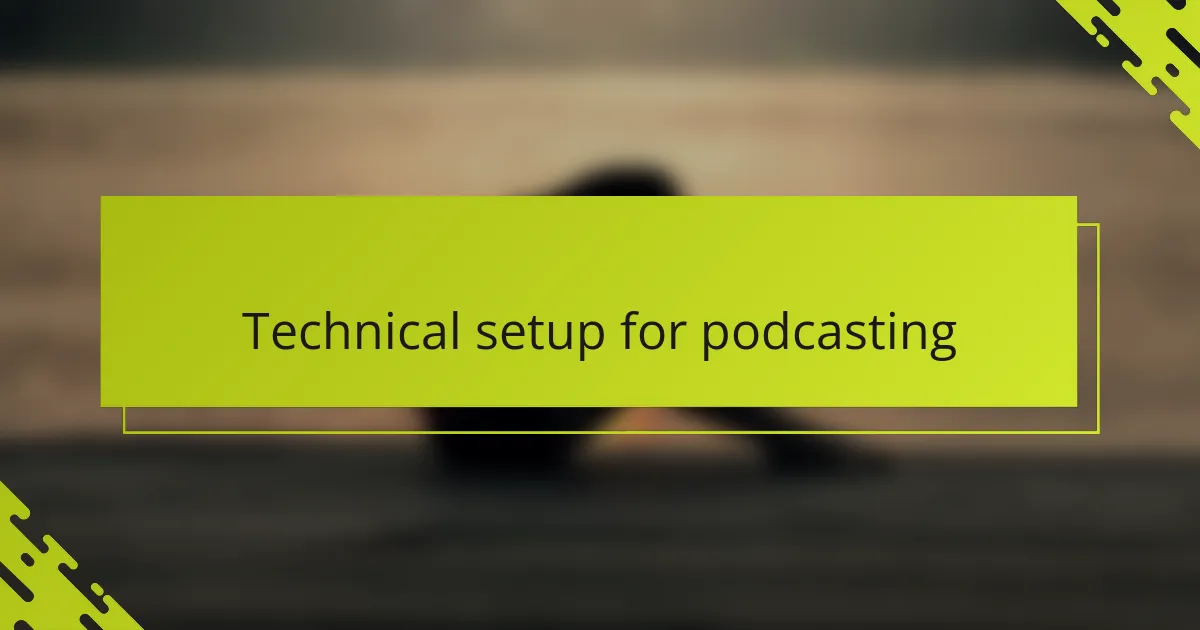
Technical setup for podcasting
Setting up the technical side of podcasting was intimidating at first. I remember staring at different microphones, unsure which one would truly capture my voice authentically. Ultimately, choosing a decent USB microphone made a huge difference—clear sound without breaking the bank—and gave me confidence that my listeners could really hear me.
Editing felt like a whole new language when I started. I experimented with user-friendly software like Audacity, and though I fumbled through the first few episodes, I quickly realized that simple cuts and fades were enough to make the conversations flow smoothly. Have you ever felt overwhelmed by technology? Trust me, patience and a willingness to learn go a long way.
One surprising lesson was how much good headphones mattered—not just for me, but for consistent editing quality. I found myself caught up in the details, tweaking background noises and balancing volumes, because every little sound shaped how my story connected with the audience. It’s funny how these technical steps, while behind the scenes, are so crucial for that intimate feeling your podcast delivers.
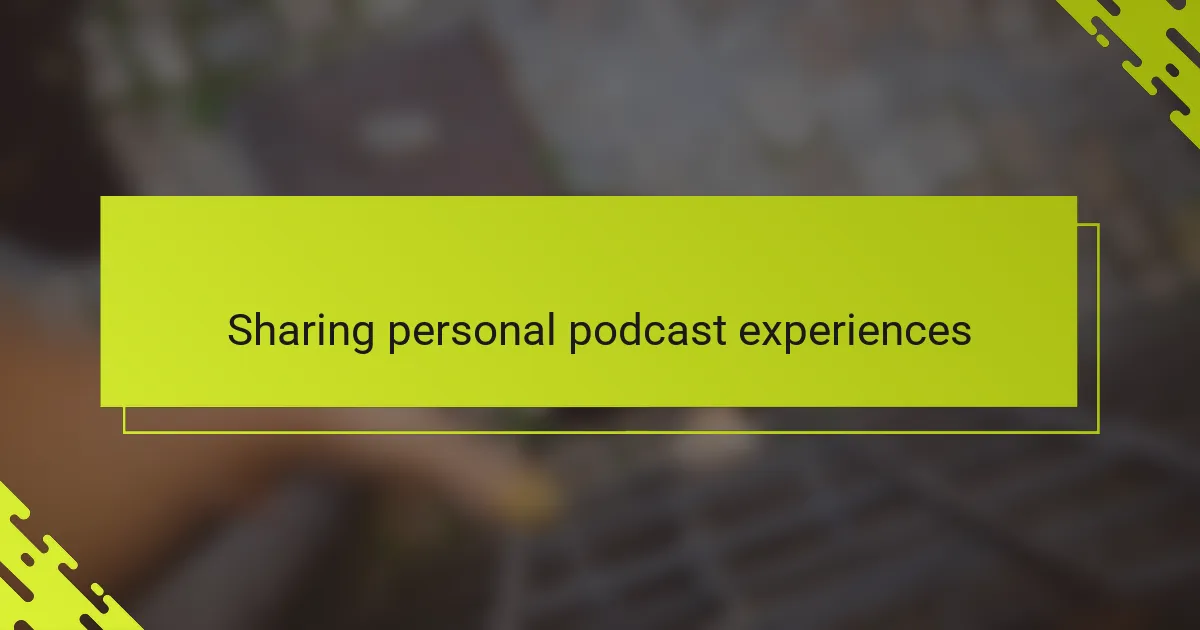
Sharing personal podcast experiences
When I first shared my own stories on the podcast, I wasn’t sure how they’d land, but opening up felt like handing my listeners a piece of my world. Have you ever felt that mix of vulnerability and excitement when your voice reaches someone out there, maybe reflecting their own experience? That moment of connection made everything feel worthwhile.
Sometimes, after recording, I’d replay conversations and notice small pauses or laughter that made the episode feel more human and real. Those imperfect, personal touches invited listeners in, reminding me that authenticity beats polish every time. It’s like sitting around a campfire, sharing stories that are messy but meaningful.
I’ve also found that being transparent about struggles—technical mishaps, creative blocks, or self-doubt—turned listeners into friends. When I admitted I was figuring it out as I went, people shared their own journeys too. Isn’t it powerful how honesty in a digital space can create community that feels so tangible?
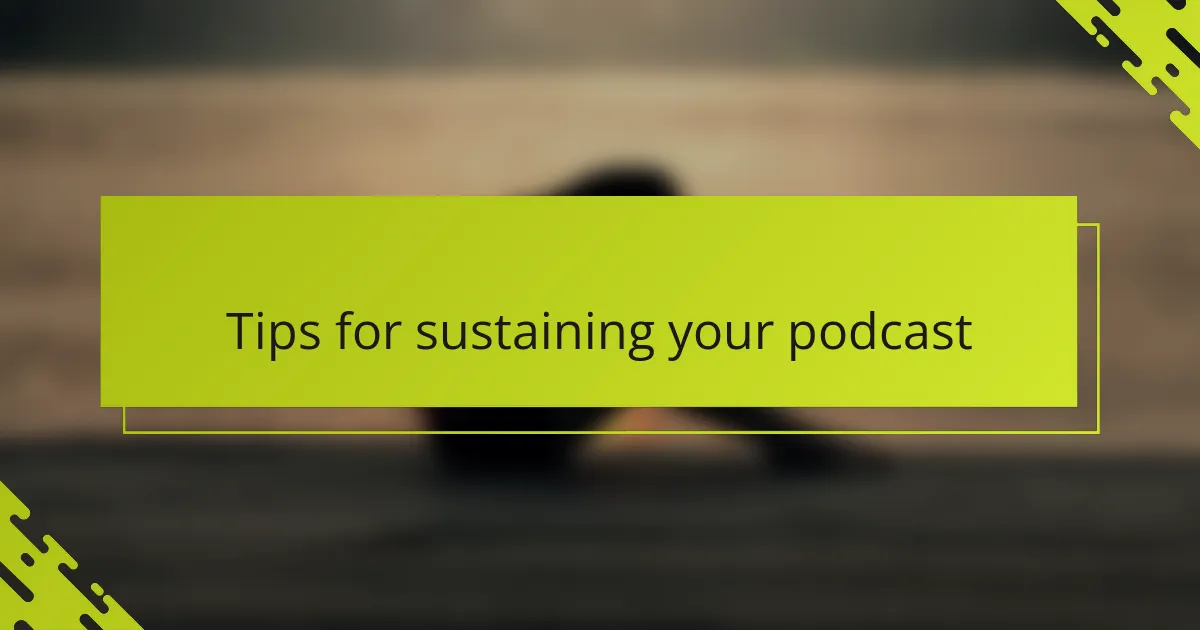
Tips for sustaining your podcast
Keeping a podcast alive over time can feel like a delicate balancing act. I found that setting realistic goals for episode frequency helped prevent burnout—there’s nothing worse than the pressure of weekly deadlines if life gets hectic. Have you ever felt that creative energy wane? Giving yourself grace, while maintaining a loose schedule, made all the difference in keeping me going without feeling overwhelmed.
Another thing I’ve learned is how vital it is to stay connected with your community. When I started asking listeners for feedback or topic ideas, the flow of inspiration never dried up. Those moments of engagement made me realize that sustaining a podcast isn’t just about content creation—it’s about nurturing relationships. Doesn’t a genuine connection make the whole process feel less like work and more like collaboration?
Lastly, I can’t stress enough the importance of celebrating small wins. Whether it was finishing an episode I was proud of or hearing from one listener who felt seen, those moments fueled my motivation to continue. I ask myself often: what keeps me passionate about this project? Recognizing progress, no matter how small, kept my podcast alive and vibrant long after the initial excitement faded.
